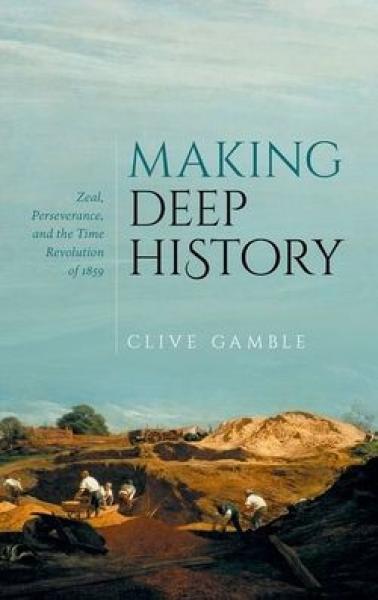Description
shattered the timescale of Genesis and kicked open the door for a time revolution in human history.
In the space of a calendar year, and at a furious pace, the relationship between humans and time was forever changed. This interpretation of deep human history was shaped by the optimistic decade of the 1850s, the Victorian Heyday in the age of equipoise. Proving great human antiquity depended on
matching the principles of geology with the personal values of scientific zeal and perseverance; qualities which time-revolutionaries such as Evans and Prestwich had in abundance. Their revolution was driven by a small group of weekend scientists rather than some great purpose, and it proved
effective because of its bonds of friendship stiffened by scientific curiosity and business acumen.
Clive Gamble explores the personalities of these time revolutionaries and their scientific co-collaborators and adjudicators -- Darwin, Falconer, Lyell, Huxley, and the French antiquary Boucher de Perthes -- as well as their sisters, wives, and nieces Grace McCall, Civil Prestwich, and Fanny Evans.
As with all scientific discoveries getting there was often circuitous and messy; the revolutionaries changed their minds and disagreed with those who should have been allies. Gamble's chronological narrative reveals each step from discovery to presentation, reception, consolidation, and widespread
acceptance, and considers the impact of their work on the scientific advances of the next 160 years and on our fascination with the shaping power of time.
"This work delivers a fatal blow to the Victorian idea of separate spheres, clearly showing that the world views and life experiences of Evans et al. informed and influenced their ability to recognise, interpret and convince others of the evidence for the antiquity of humanity. Making deep history
is archaeological storytelling at its finest, anchoring the birth of prehistory in the lives of the men--and women--who gave the world the gift of endless time." -- Emily Hanscam, Journal of Antiquity
"Making Deep History concerns the lives and work of four people who played a central role in the demonstration of human antiquity. [...] This entertaining book traces their biographies and the impact of their ideas - 162 years after their original discovery it does belated justice to the 'time
revolutionaries'." -- Richard Bradley, Current Archaeology
Product Details
- Oxford University Press, Brand
- May 25, 2021 Pub Date:
- 0198870698 ISBN-10:
- 9780198870692 ISBN-13:
- 336 Pages
- 8.6 in * 5.7 in * 1 in Dimensions:
- 1 lb Weight:




